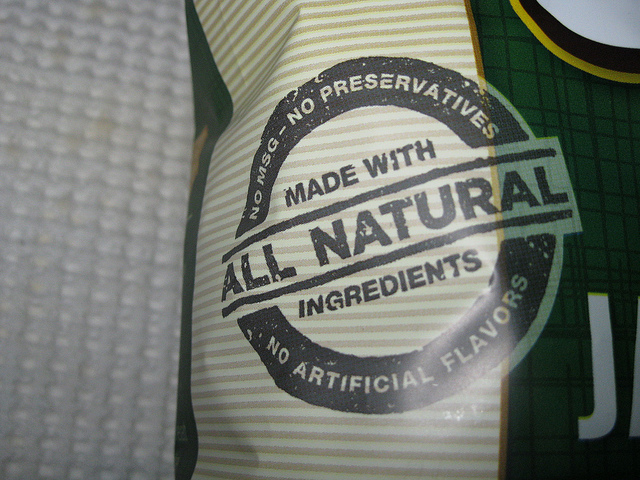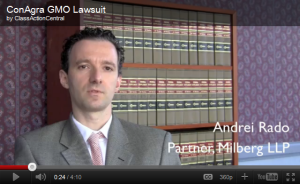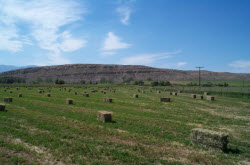After a lengthy legal battle the U.S. Department of Agriculture decided to completely deregulate Monsanto’s genetically engineered sugar beets.
|
|
|||
|
Nearly 35 years ago, the Food and Drug Administration initiated proceedings to withdraw the approval of the subtherapeutic use of certain antibiotics in agricultural animals but it took a Court Order to force the agency to follow through. Organic and conventional family farmers, small and family-owned seed companies, and agricultural organizations recently filed an appeal in the case of OSGATA et al v. Monsanto, which was dismissed by a Federal Court in New York on February 24, 2012. The Federal District Court in New York dismissed the organic and conventional farmers’ complaint against Monsanto. But despite the legal loss, the lawsuit leaves a beneficial legacy. All Natural chips made by Frito-Lay may not be so natural after all, says a new lawsuit alleging that the snack-maker is misleading consumers with its all natural claims when in fact the products are made from genetically modified ingredients. Monsanto’s stronghold over seed patents was reinforced recently when an appeals court affirmed a prior ruling against a farmer, this time for buying seeds as “commodity” seeds from a local grain elevator. The recent lawsuit against ConAgra Foods challenges the “pure” and “100% natural” labeling on the popular line of Wesson cooking oils allegedly made with genetically modified corn and soybeans. Watch this discussion about the nature of the suit. Farmers and agricultural organizations demanded their right to be heard after Monsanto asked the court to dismiss the lawsuit challenging the company’s aggressive enforcement of genetically modified seed patents. Monsanto is forced to backtrack on a lawsuit alleging that two Erie area farmers saved patented seeds. We look at that and, also, the latest on Anonymous hacking attack against Monsanto Two class action suits challenge the “pure” and “100% natural” labeling of ConAgra’s line of Wesson cooking oils. Can something genetically modified be also natural and pure? “Society stands on the precipice of forever being bound to transgenic agriculture and transgenic food” reads the first sentence in the amended complaint filed by farmers, environmentalist, researchers and consumer groups against Monsanto. New plaintiffs strengthen the resolve to stand up to Big M. Lawsuit by organic groups asks Federal court to invalidate Monsanto’s patents and to end Monsanto’s practice of suing farmers over GMO contamination. Conventional and organic farmers and environmental groups filed a lawsuit challenging the USDA’s decision to permit the unrestricted commercial release of genetically engineered alfalfa. A California Appeals Court reversed a lower court’s ruling which would have required the destruction of genetically modified sugar beet seedlings planted in September 2010. On the heels of the decision to deregulate genetically engineered alfalfa, this Friday USDA announced that it will allow the planting of Monsanto’s “Roundup Ready” GE sugar beets even though the agency has yet to finalize conducting an Environmental Impact Statement. German’s top court, ruled on November 24, 2010, that the two-year-old law restricting areas where genetically modified crops are grown protected the public from risks of technology. Federal Court finds that Plaintiffs are likely to succeed on their claims that the Animal and Plant Health Inspection Services illegally permitted the planting of genetically engineered sugar beet. The 3rd Circuit Court of Appeals recently permitted New Jersey blueberry farmers to continue with their suit for negligent misrepresentation, fraud and products liablity against a pesticide manufacturer, Novartis Crop Protection, Inc. In depth analysis of Judge White’s decision which rescinded USDA’s and APHIS’ decision to deregulate Roundup Ready sugar beets without conducting an Environmental Impact Statement. The United States Supreme Court handed down its first ever decision concerning genetically modified crops and it is a mixed result for farmers, consumers and environmental groups. We review and provide legal analysis of the oral argument in the Monsanto v Geertson matter heard recently by the Supreme Court. Today, the U.S. Supreme Court is hearing oral arguments in the case of Monsanto v. Geertson Seed Farms. At stake is a decision issued by California District Court which issued a permanent injunction against any further planting of genetically engineered alfalfa crop in 2007. On March 16, 2010, a California District Judge denied plaintiffs’ request to halt the planting of GE sugar beets. The Court’s decision, however, left open the possibility of a ban, which is to be determined at the permanent injunction hearings in July. After nearly a two-hour hearing yesterday, the U.S. District Judge Jeffery White reserved judgment as to whether a preliminary injunction, that would prevent the production or planting of genetically modified sugar beet seeds, should issue. Both parties, however, expect a quick decision as farmers will soon be ready to plant their crop. |
|||
|
 |
|||














